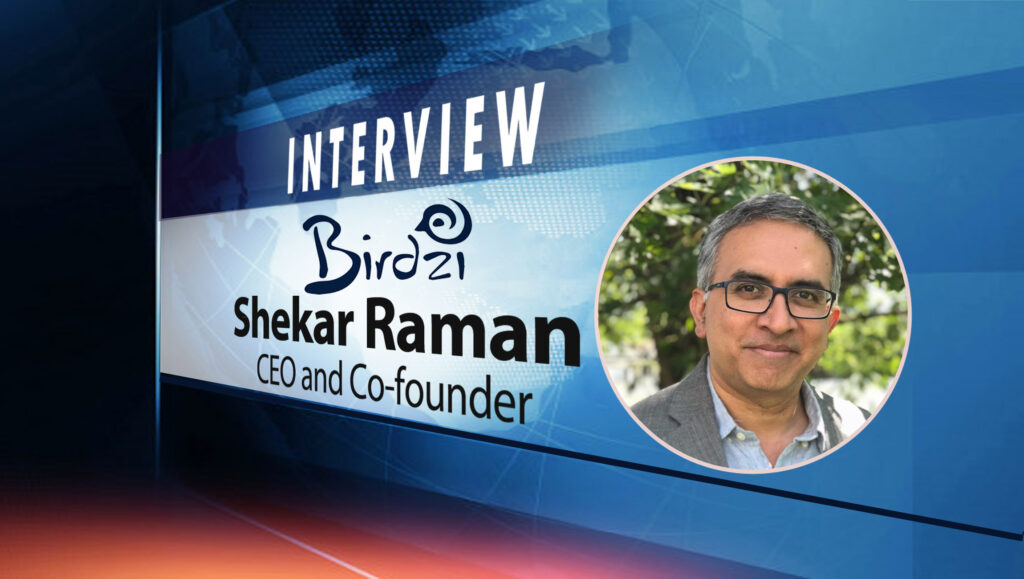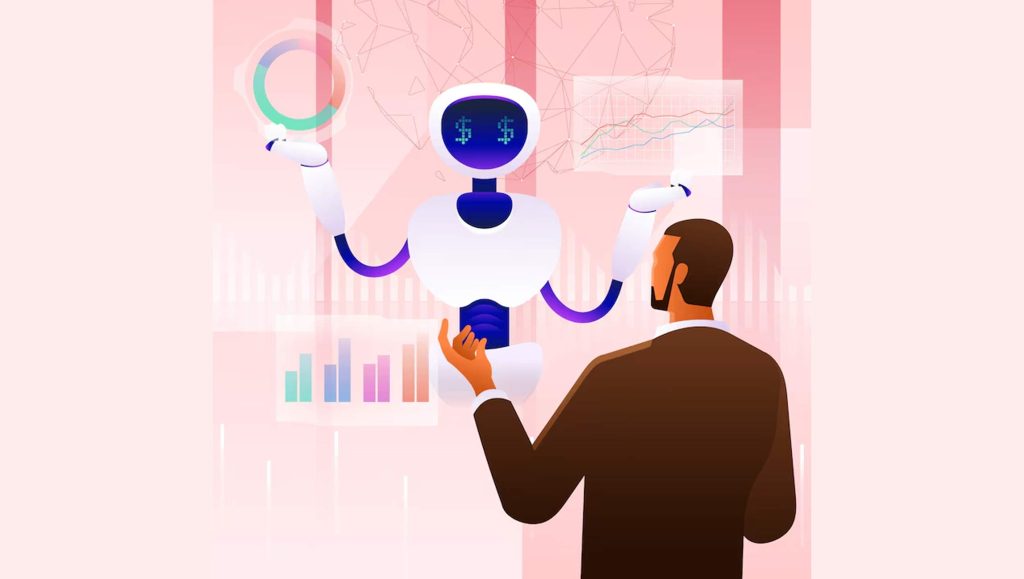Shekar Raman, CEO and Co-founder at Birdzi comments on the widening impact of AI in retail sales and its benefits in driving in-store experiences in this chat with SalesTechStar: ______ My journey towards entrepreneurship with Birdzi was a unique one. After a long history of engineering, I was helping my then 11-year-old daughter brainstorm for her school’s “invention day” while shopping at the grocery store with my daughter. In that instance, she noticed a problem and suggested that we ‘invent’ something that helps shoppers find the products on their list faster. I knew she was right, there had to be a better way to navigate the grocery journey, and I knew I could help companies do it. This led to the creation of Birdzi, even though I had no previous experience with retail. After some experimentation and testing, we realized that the platform we needed to make wasn’t about helping a shopper locate an item, as most supermarkets did not have the bandwidth to implement something like this. Instead, we pivoted Birdzi to building a Customer Intelligence Platform that guided retailers to a stronger understanding of their customers so they could create more efficient, automated personalized campaigns. Read More: Setting Records, Walmart Continues Moving Toward Becoming a Totally Renewable Business AI is rapidly transforming the retail industry. So much so that I’d say I spend 25% of my day designing new innovative AI tech for our customers. I believe that the future of retail will incorporate more experiential aspects for shoppers. With the convenience of the advanced online shopping capabilities and efficient BOPIS-style options available today, retail and store based businesses will need to go beyond price or location to distinguish themselves from the competition. To do this effectively, a high degree of customer intelligence is critical and AI can provide just that. With a strong AI-based customer-first strategy, you can identify the challenges facing your customers and actively work to solve them before they become a detriment to sales or customer relations. Unlike some others in the retail landscape, I don’t think physical retail is at risk of extinction. As long as humans are social and crave that physical engagement, brick-and-mortar stores will have a space. Yet, the most successful brick-and-mortar retailers will be those that capitalize on a particular set of values across all shopping channels. This value should not just be seen in messaging, it should be evident across all elements of the business. For example, if your business preaches about customer service, ensure the in-store associates are as equipped to deal with questions as the online support network is. Similarly, if you offer a personalized in-store experience based on local weather, sales patterns, and preferences, the online website should gather the same data and offer an equivalent experience through the use of AI-driven customer profiles and personalized marketing strategies. Another key technology that I think we will see taking off is mobile checkout where shoppers can complete their in-store transactions on their mobile devices. We’ve had the great pleasure of working with three major regional grocers recently, Harps Food Stores, Weis Markets, and Coborn’s and we’ve been so impressed by the way they’re leaning into a digital-first strategy. As essential retailers during the pandemic, the efforts to reduce contact and prioritize efficiency were commendable. For instance, Harps launched a rewards app during the pandemic which helped them gain access to customer data that aided their decisions regarding product assortment, pricing, scheduling to create a more effective shopping experience, which keeps associates and shoppers safe. Similarly, Coborns offered new online opportunities and loyalty programs for shoppers who preferred the digital experience during the height of COVID-19 and they saw a 355% increase in customer retention in those shoppers that are digitally engaged. Read More: SalesTechStar Interview with Mark Magnacca, President and Co-founder at Allego I think a solid CRM platform to send out timely and relevant communications, a Customer Intelligence Platform to gain deep insights and help plan strategic shopper-centric campaigns, and digital touchpoints like mobile, web and ecommerce experience are essential. Digital engagement is no longer an option, it’s an imperative, so retailers that delay the switch to an omnichannel strategy run the risk of losing customers to digitally savvy competitors. As customer expectations increase retailers have to find new ways to delight their customers. Utilizing strategic personalization is one of the ways they can do this. Strategic personalization starts with the customer and creates unique offers for that individual customer. Digital coupons, ad flyers, etc. are all great ways to engage with customers across channels, but retailers have to do more because customers expect more. The customer-first approach of strategic personalization gets the right offers to the right customer at the right time utilizing the entire store catalog instead of the limited offers supplied by the brands. This unties the hands of the retailer and gives them the freedom to truly give their customers what they want. Our retail partners have seen the reality of this kind of marketing personalization using Birdzi’s VISPER strategic personalization campaigns. The incredible ROI is evidence that this type of marketing is what customers want. In short, retailers have to continue to find new ways to make customers feel seen and understood. Read More: Remote Work Doesn’t Mean The Risk Is Remote Birdzi is an innovative provider of end-to-end personalized digital customer engagement solutions for grocery retailers. Its platform helps regional retailers leapfrog their largest competitors by driving contextually relevant engagement across every touchpoint, inside and outside the store. Birdzi’s AI-powered personalization uses data science and big data to deliver real-time, personalized offers to individual shoppers to grow basket size, increase the frequency of shopping trips, and improve customer retention. Birdzi’s solutions are used in hundreds of grocery stores, driving millions of relevant offers to consumers each month. Shekar Raman is the CEO and co-founder of Birdzi. Shekar began his career working on the Human Genome Project at the Dept. of Human Genetics, Univ. of Pennsylvania, developing algorithms for protein modeling. He was part of some of the pioneering groups (early 90s) in BioInformatics at UPenn, and at the Dept. of Human Genetics, UNLV, where he applied speech recognition techniques to identify and classify genetic sequences. He then continued onto AT&T Bell Labs, working in the Speech Recognition group as a consultant developing data collection algorithms where he also acquired significant expertise in systems engineering. He then later moved on to Systems Engineering, architecting and implementing infrastructure solutions for a large Fortune 500 company working in both consulting and management roles before founding Birdzi. Shekar Raman has a Bachelor of Engineering degree in Electronics and Communications from Osmania University, Hyderabad India. He went to Graduate School at Villanova University where he obtained a MS in Electrical Engineering with a focus on Digital Signal Processing and Pattern Recognition.Hi Shekar, we’d love to hear about your journey through the years…tell us more about Birdzi’s journey and inspiration behind it?
How are you seeing AI transform the game for retailers and store based businesses today?
What are some of the top customer facing technologies that you feel today’s brick and mortar stores need to think about investing in to improve the customer experience and create better offline-online buying journeys?
Can you talk about some of the most successful retailers globally who you’ve seen implement technology well aligned to processes to drive value and business impact?
What are some core sales technologies and customer experience technologies that you feel should form the crux of a tech stack for a digital customer facing team?
A few thoughts on what you feel today’s sales and marketing leaders need to do differently?

Strengthening your Marketing and Sales Alignment with better data-driven insights – how do the leaders do it? Catch more tips from the latest episodes of The SalesStar Podcast!















